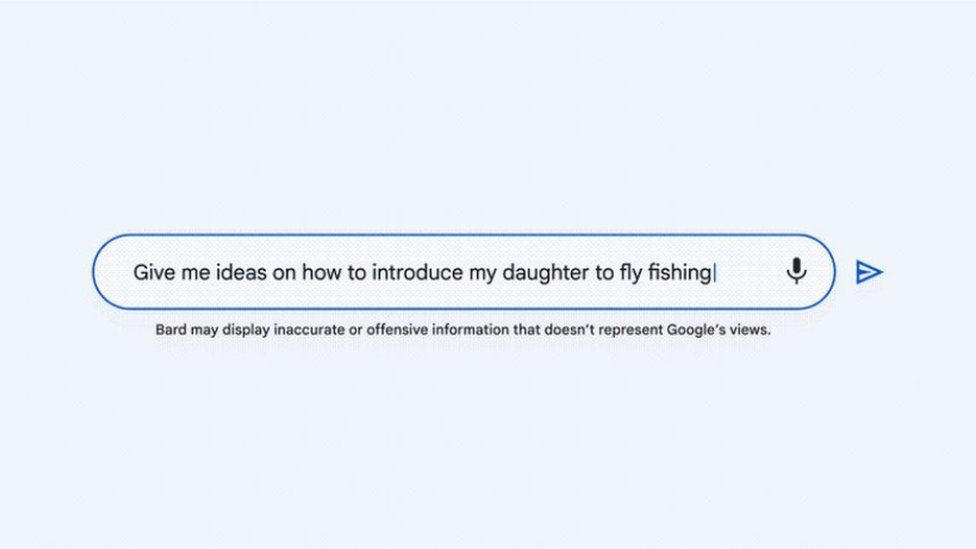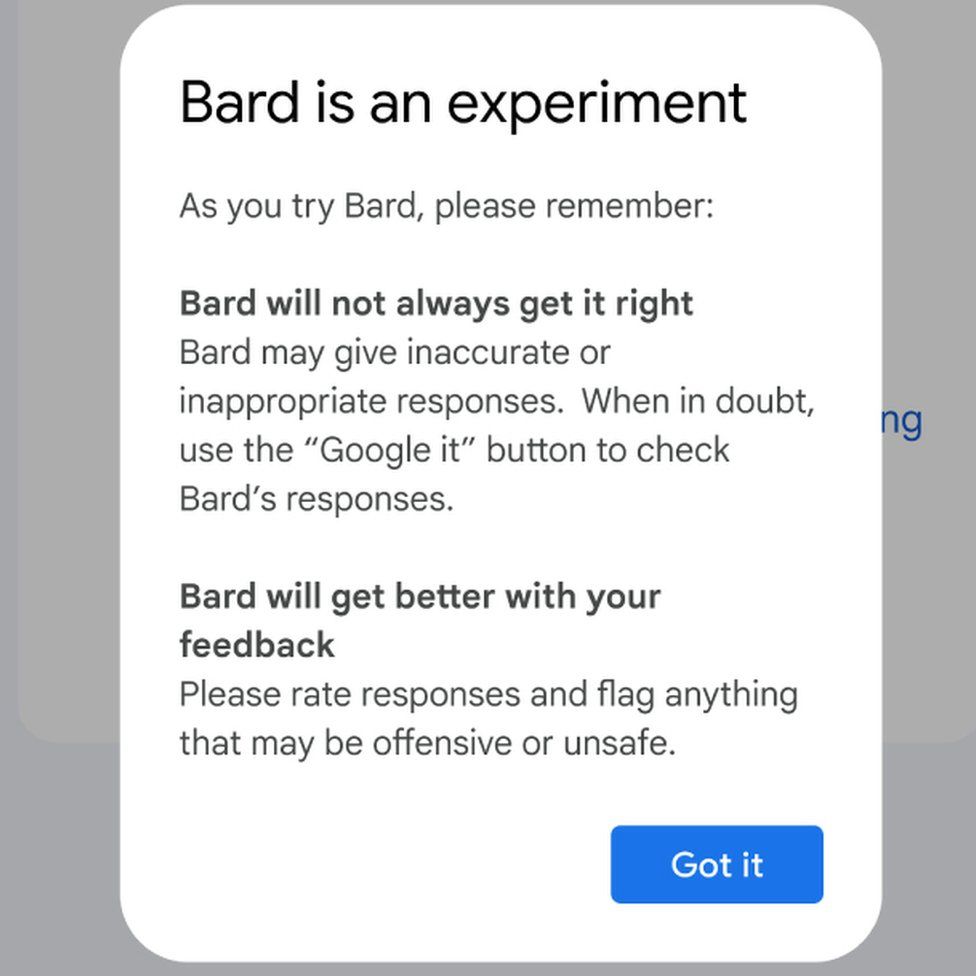

Google has started rolling out its AI chatbot Bard, but it is only available to certain users and they have to be over the age of 18.
Unlike its viral rival ChatGPT, it can access up-to-date information from the internet and has a “Google it” button which accesses search.
It also namechecks its sources for facts, such as Wikipedia.
But Google warned Bard would have “limitations” and said it might share misinformation and display bias.
This is because it “learns” from real-world information, in which those biases currently exist – meaning it is possible for stereotypes and false information to show up in its responses.
AI chatbots are programmed to answer questions online using natural, human-like language.
They can write anything from speeches and marketing copy to computer code and student essays.
When ChatGPT launched in November 2022, it had more than one million users within a week, said OpenAI, the firm behind it.
Microsoft has invested billions of dollars in it, incorporating the product into its search engine Bing last month.
It has also unveiled plans to bring a version of the tech to its office apps including Word, Excel and Powerpoint.
Google has been a slower and more cautious runner in the generative AI race with its version, Bard, which launches in the US and UK to begin with. Users will have to register to try it out.
Bard is a descendant of an earlier language model of Google’s called Lamda, which was never fully released to the public. It did, however, attract a lot of attention when one of the engineers who worked on it claimed its answers were so compelling that he believed it was sentient. Google denied the claims and he was fired.

Google senior product director Jack Krawczyk has told the BBC that Bard is “an experiment” and he hopes people will use it as a “launchpad for creativity”.
He showed me an example of how he had used Bard to help him plan his young child’s birthday party.
It came up with a theme which incorporated his child’s love of bunny rabbits and gymnastics, found the address of a venue he mentioned and suggested party games and food.
“So much of the [media] coverage is that AI is the hero,” said Mr Krawczyk. “I think the human is the hero and large language models are here to help unlock creativity.”
While ChatGPT’s knowledge database only extends as far as the year 2021 – it cannot, for example, answer questions about the recent earthquake in Turkey and Syria – Bard can access current information. It explained to me a news story about TikTok being banned on UK government phones, published on the BBC website a few days ago.
It is programmed not to respond to offensive prompts and has filters to prevent it from sharing harmful, illegal, sexually explicit or personally identifiable information but “like any method these guardrails will occasionally fail”, said Zoubin Ghahramani, vice president of Google Research.
Make no mistake, this is an extremely cautious product launch, about as far away from the former “move fast and break things” bravado of the early days of big tech as it is possible to get.
When I asked if the firm was nervous, Mr Krawczyk paused before answering that its approach to the launch of Bard was “deliberate”.
If Google is nervous, it has good reason to be.
For all the excitement that exists around this kind of tech, there are horror stories about some of the more disturbing things ChatGPT has been manipulated into doing, and there are also fears that ultimately these powerful tools, still currently in their infancy, could be a huge threat to lots of different types of jobs.
There is also – and this is particularly relevant to Google – a theory that chatbots could one day replace the lucrative business of internet search altogether. Why wade through pages of search result links when you could just get one neatly written answer? Google cannot afford to be out of the race.
Mr Krawczyk and Mr Ghahramani talked a lot about the responsibility and principles that comes with the tech. They even told me about the huge data centres powering Bard, and how they aim to run them using renewable energy.

They revealed Google was restricting access to over-18s when I asked whether students would start using Bard to do their homework instead of ChatGPT. Teachers have warned pupils not to use chatbots to do their work for them although some educators have embraced it.
Google says it will be closely monitoring Bard to make sure it adheres to its own “AI principles” which include avoiding the creation or reinforcement of bias.
It will not be able to express opinions or take on a persona, although like ChatGPT it will be able to mimic the writing styles of others.
It helped Google write its own announcement, said the firm’s Sissie Hsiao and Eli Collins, who were also co-authors of the launch blog post.
“It didn’t always get things right. But even then, it made us laugh,” they said. – bbc.com